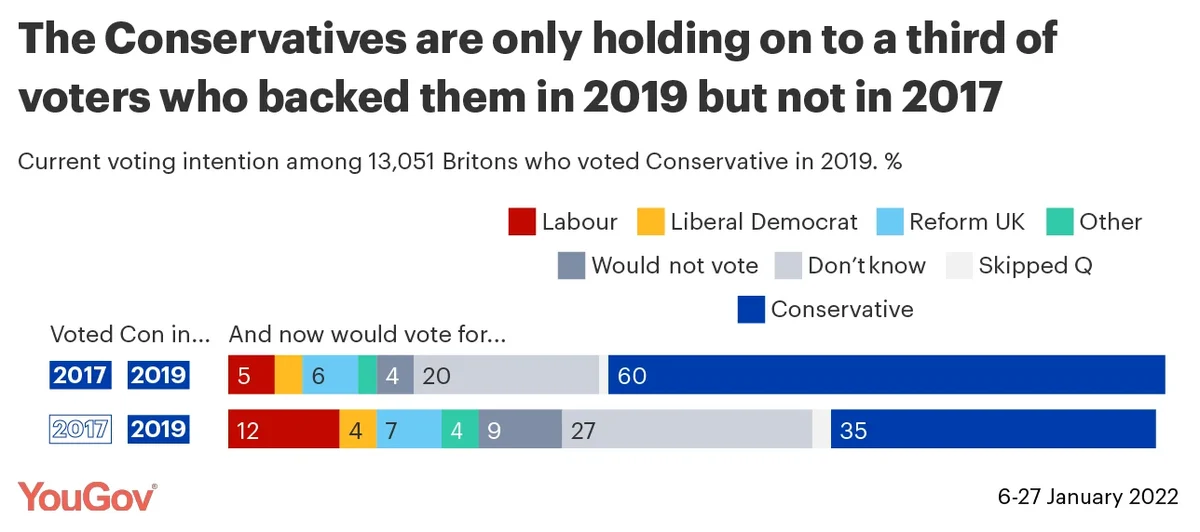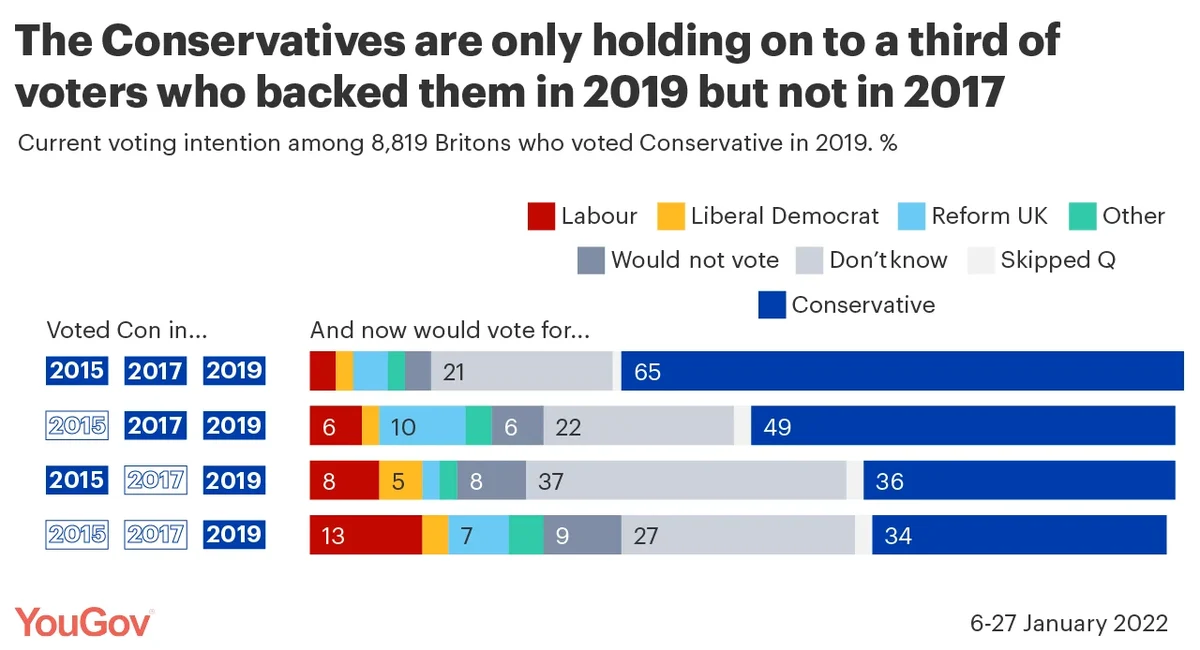Just 35% of those who voted Conservative in 2019 but not 2017 say they currently intend to vote for the party
Following months of scandal engulfing the government, the Conservative vote share has fallen from around the 40% mark to the low 30s. As discussed here, much of this drop has come from those who voted Conservative in 2019 switching their allegiance or saying they are unsure how they would vote if there was an election now.
To dig further into who is leaving the party, we’ve split these 2019 Conservative voters into two groups: those who voted Conservative in 2017 and 2019 and those who only voted Conservative in the latter of these two elections.
The Conservatives are doing a far better job at holding onto their 2017+2019 voters, with 60% of this group saying they intend to continue to vote Tory compared to just 35% of those who only backed them in 2019.
At present, 27% of those who voted Conservative in 2019 but not 2017 say they are unsure who they’ll vote for, while another 27% say they’ll vote for another party. This latter group includes 12% switching directly to Labour, 7% going to Reform UK and 4% the Liberal Democrats.

Among those who voted Tory consecutively, meanwhile, one in five (20%) say they are unsure how they’ll vote and 16% intend to vote for a different party.
This higher level of party switching among the 2019-only Conservative voters will be of particular concern to the new intake of MPs, many of whom benefited from 2017 Labour voters moving directly to the Conservatives. If these voters in particular are returning, then this will hurt twice as much in Tory-Labour marginals.
It is also unlikely that Reform UK will stand down in Conservative held seats as the Brexit Party did in 2019, so there is also potential for the Tory vote to be squeezed from the right.
What about if we include 2015 vote?
Following the EU referendum there was a lot of party realignment based on Brexit preference that persisted to the 2019 general election, but now seems to be weakening. That being the case, it is potentially useful to go one step further back and look at whether people’s vote in 2015 offers some clues as to their likelihood of voting Conservative at a future general election.
As is to be expected, those who voted Conservative in all three of the previous elections are stickier than those who didn’t, with 65% saying they’d vote the same way if there was an election tomorrow, 21% are unsure and 11% say they’ll vote for someone else.
Half (49%) of those who voted for the Tories in 2017 and 2019 but not 2015 say they’ll still vote Conservative, with 21% saying they’ll vote for a different party. The largest benefactor from this group is Reform UK, who are currently syphoning off 10% of this group.

Among those who voted Conservative in 2019 but not 2017, similar numbers currently still intend to vote Conservative whether they backed the party in 2015 (36%) or not (34%). There is a difference, however, in where these voters are going.
Those who didn’t vote Tory in 2015 or 2017 are more likely to say they’ll vote for another party (27%) than those who did in 2015 but not in 2017 (17%). The latter group are more likely to say they are unsure (37% vs 27%).
The more indoctrinated into voting for a party someone is, the more likely they will continue to vote that way. New voters will always be trickier to keep hold of than longer term supporters, but the fact that so many of these first time Conservatives (or at least first time in at least nine years) are saying they intend to move away from the party should be concerning ahead of the next election.







